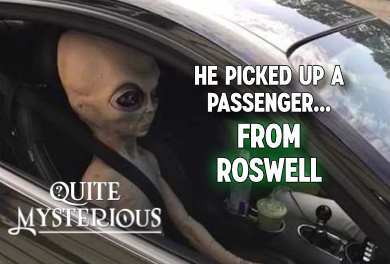Space & Astronomy
August 17, 2015 · 21 comments
21 comments

The speed of light is a significant barrier to exploring the universe. Image Credit: NASA/ESA/ESO
The key to interstellar space flight therefore would seem to lie in finding a way to exceed the speed of light - something that conventional physics currently deems impossible. Or does it ?
According to Professor Lewis Geraint Lewis from the University of Sydney, the concept of traveling faster than light has been a part of Einstein's theory of relativity all along.
"If you look at the equation that Einstein gave us, it shows you can bend and warp space so you can travel at any speed you like in the universe," he said. "It's theoretically possible."
The main issue then, Prof Lewis contends, would be in the actual construction of a working warp drive - something that he believes would require material with a 'negative energy density'.
"It is not a material that we actually have in our hands, but there are signs that there are aspects of the universe that actually have this kind of property," he said.
"Empty space itself has a negative energy density. The big question is if we could mine it and shape it, we would basically have a warp drive there and then, but we just don't know if that's possible."
Source: ABC.net.au | Comments (21)
Can we travel faster than the speed of light?
By T.K. RandallAugust 17, 2015 ·
 21 comments
21 comments
The speed of light is a significant barrier to exploring the universe. Image Credit: NASA/ESA/ESO
Professor Geraint Lewis believes that traveling at warp speed may actually be a viable possibility.
Right now the idea of traveling to planets orbiting distant stars is something that we can only dream about - even a spacecraft moving at just under the speed of light would take four years to reach the next closest star and over two million years to reach the next nearest galaxy.The key to interstellar space flight therefore would seem to lie in finding a way to exceed the speed of light - something that conventional physics currently deems impossible. Or does it ?
According to Professor Lewis Geraint Lewis from the University of Sydney, the concept of traveling faster than light has been a part of Einstein's theory of relativity all along.
The main issue then, Prof Lewis contends, would be in the actual construction of a working warp drive - something that he believes would require material with a 'negative energy density'.
"It is not a material that we actually have in our hands, but there are signs that there are aspects of the universe that actually have this kind of property," he said.
"Empty space itself has a negative energy density. The big question is if we could mine it and shape it, we would basically have a warp drive there and then, but we just don't know if that's possible."
Source: ABC.net.au | Comments (21)

The Unexplained Mysteries
Book of Weird News
AVAILABLE NOW
Take a walk on the weird side with this compilation of some of the weirdest stories ever to grace the pages of a newspaper.
Click here to learn more

Support us on Patreon
BONUS CONTENTFor less than the cost of a cup of coffee, you can gain access to a wide range of exclusive perks including our popular 'Lost Ghost Stories' series.
Click here to learn more
UK and Europe
United States and the Americas
Science and Technology
Palaeontology, Archaeology and History
Total Posts: 7,749,991 Topics: 323,891 Members: 203,495
Not a member yet ? Click here to join - registration is free and only takes a moment!
Not a member yet ? Click here to join - registration is free and only takes a moment!


































Please Login or Register to post a comment.